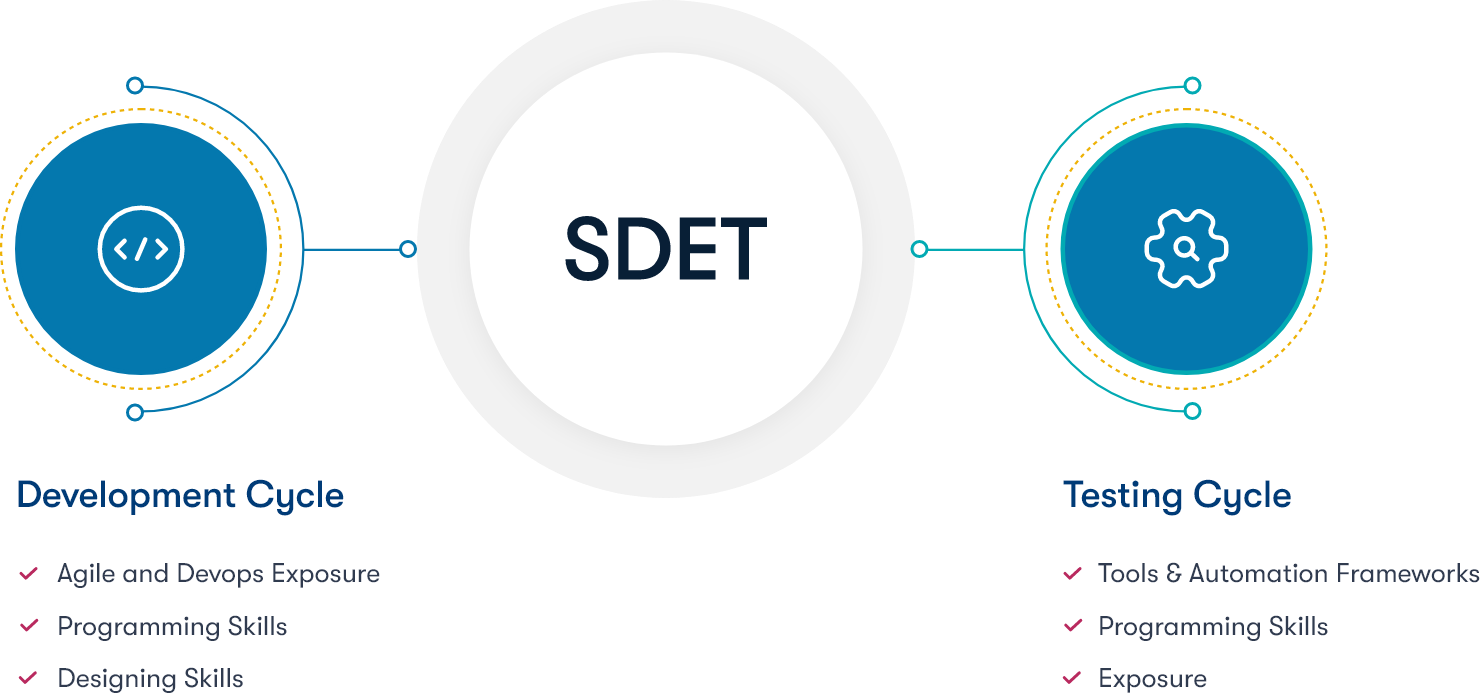Emerging Tech
Software Development in Testing (SDET)
The importance of SDETs in the digital transformational future of all
This is where the role of a Software Development Engineer in Test (SDET) becomes essential. An SDET ensures that software products meet all requirements and are fit for purpose. They can design and implement test plans assessing functionality and performance with their deep technical understanding. In addition, SDETs can also provide valuable insights into how software can be improved and made more user-friendly. In an age where even the smallest glitch can have significant consequences, the role of an SDET is crucial in ensuring that software systems are up to the task.


Why are SDETs essential?
The need for digital transformation is widely recognized across industries as companies strive to keep up with the ever-changing landscape of the business world. As part of this shift, the role of the SDET is becoming increasingly important. SDETs play a crucial role in ensuring the quality of software products, and their skills are in high demand as companies invest in agile frameworks and DevOps processes. In addition, SDETs play a key role in automating testing processes and helping to improve the efficiency of software development. As a result, the part of SDET is worth the attention across industries as companies invest in digital transformation.
With most software development projects adhering to the agile framework of solutioning, it is critical to increase effectiveness further and bring down turnaround times to minimize risks. Hence the role of SDETs becomes unavoidable.
SDETs play an important role in the agile software development process. They are responsible for writing code that meets the product development team’s needs and testing that code to ensure its quality. In addition, SDETs continuously improve the codebase by fixing bugs and adding new features. As a result, SDETs must have a strong understanding of software development and testing methodologies. While the role of SDET can be challenging, it is also advantageous.


Key Differentiators of Our SDET Offerings.


Technological
- First, our team can help to ensure that software meets client requirements and is high quality with the shortest turnaround times.
- Second, they help automate testing processes, saving time and money. Third, they can help to improve communication between development and testing teams.
- Finally, they can help to reduce the need for manual testing.


Analytical
- Coming from the core development background, our SDETs proactively analyze and eliminate potential risks at a functional level.
- Holistic awareness of the big picture ensures that clients’ requirements are handled extensively as part of the test-design planning and coverage.
Process & Frameworks
- Exhibit inherent adherence to the agile-framework processes.
- Deep understanding of the DevOPS model of approach to software development.
- Hands-on experience with varied test automation frameworks and tools.
- Exhaustive experience in ensuring meeting the Quality Assurance goals set for the software lifecycle.


Transformational
- The test plan strategy encapsulates the approach for behavior-driven (BDD), test-driven (TDD) and acceptance-test-driven (ATDD) approaches for software development.
- Our SDETs are end-user advocates who help enhance the product design based on first-hand experience in interfacing with the client stakeholders.

